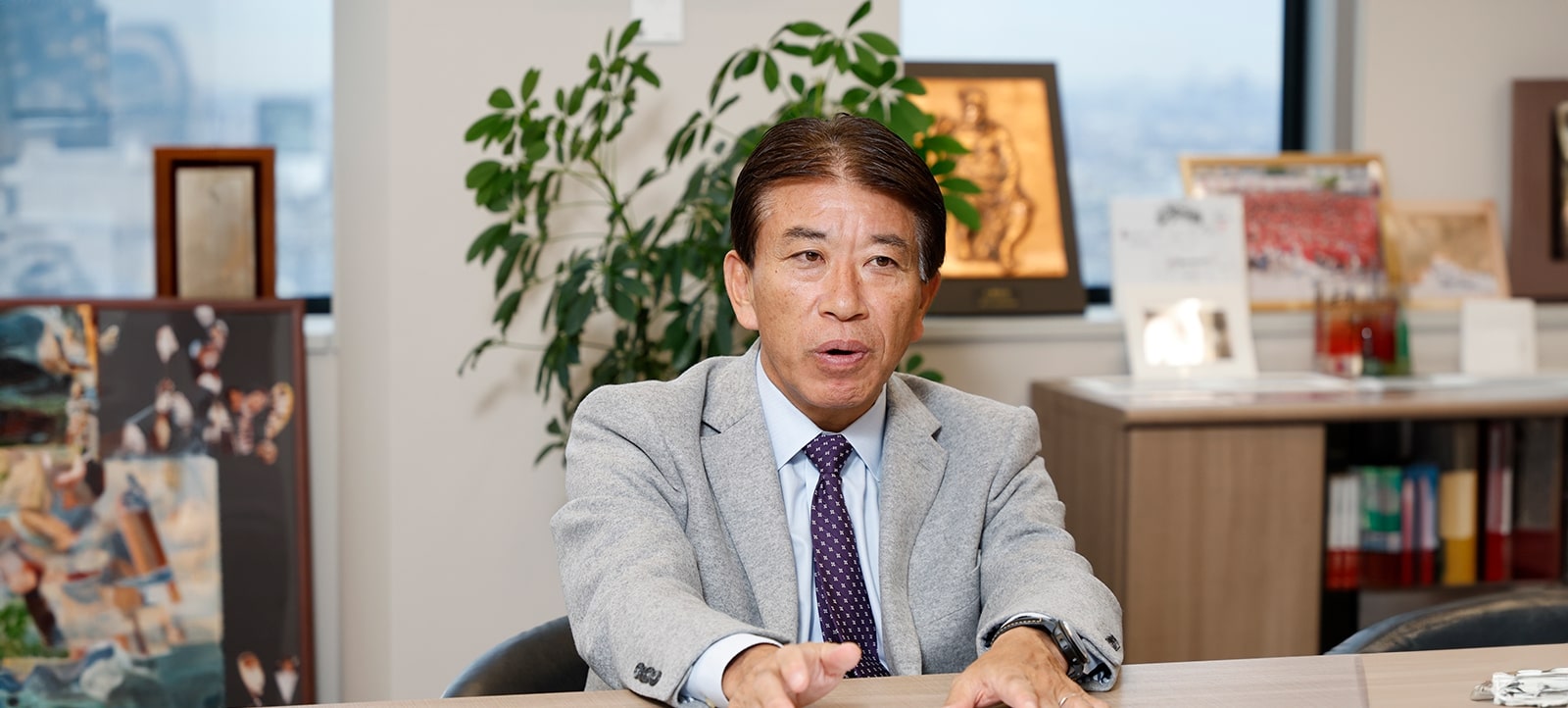My History
Our company can be summed up as an outsourcing provider for employee benefits. Originally, our concept was based on "offering services, not goods, via the internet," with a vision of creating a BtoE platform. BtoE, much like BtoB (business-to-business) or BtoC (business-to-consumer), refers to "business-to-employee," with the "E" standing for employees. Our business model involves charging companies membership fees and, in return, providing a range of services to their employees.
We began developing this business model in 1995, during the early days of the internet. At the time, I had a strong sense that internet services would become a massive industry, capable of transforming society. While many companies were focusing on advertising models or selling physical goods online, we took a different approach by selling services. While some companies were starting to offer travel and hotel booking websites, we set ourselves apart by providing a model where users would pay a regular fee to access a variety of services. This is essentially what we now call a subscription service. Today, the subscription model is globally widespread, but we were among the pioneers to introduce it in the online business space.
Of course, it wasn’t easy convincing individual users to pay membership fees. That’s when we turned our attention to employee benefits as a means to acquire members. By targeting employees through their companies, we could acquire large numbers of members in one go. We struggled to secure contracts for the first two years, but after the 1998 financial crisis, everything changed. Large corporations, forced to abandon their company-owned vacation facilities, began outsourcing their employee benefits as a replacement, and that’s when the tide turned in our favor.
The Present
After 28 years since our founding, we are finally seeing signs that the vision we initially had is becoming a reality. Today, Japan’s workforce consists of about 67 million people, and with our employee benefits membership now reaching 10 million, roughly 1 in every 6 or 7 workers in Japan is using our services. Our long-term goal is to provide membership to everyone in Japan, and we’re currently strategizing to make that happen. With our family membership system, which extends benefits to second-degree relatives, it's not far-fetched to think we could eventually serve all 120 million people in the country. Looking ahead, we also need to think about our role as part of the social infrastructure. While our current model is based on subscription fees, we anticipate that even this approach will become outdated over time.
As a key pillar of our growth strategy, we are working to monetize payment systems. We've launched a service that allows users to pay for various services through payroll deductions, offering perks like discounts and special rates. By allowing direct salary deductions for expenses such as utilities and internet bills, we can bypass bank transfer fees and offer services at cost price, which is the lowest available. For users, this means they can pay for their living expenses at the lowest rates while also consolidating their payments for added simplicity. From our perspective, even if individual transactions are small, the potential revenue from millions of monthly users adds up significantly. Our goal is to grow this payment service and eventually establish it as a standard across Japan.
In May 2024, we became part of Dai-ichi Life Holdings to fully leverage the synergy between our companies. Through Dai-ichi’s extensive sales network, we will aim to expand our customer base and accelerate membership growth, particularly targeting the underserved small and medium-sized enterprise market via Dai-ichi’s 35,000 nationwide sales agents. By integrating Dai-ichi Life Group’s products and services—ranging from insurance and asset management to health and medical care—into our platform, we believe we can enhance the convenience and value we offer to companies and their employees even further.
For the Future
The world is constantly evolving in every way at a rapid pace. As the digital society advances, I believe that traditional competition will become obsolete, and we will see a trend towards consolidation into a single platform across various fields. We can expect dramatic changes in the coming 10 to 20 years, not just in business and the economy but also in science and philosophy. The rapid development of technology will lead to a significant reduction in costs, potentially making traditional economic models unviable. Concepts like universal basic income may become a reality, and changes in people's lifestyles could be just around the corner. Given this anticipated future, I see a bright outlook for Japan. The spirit of mutual aid and social pressure for conformity in Japan will play a significant role in fostering a society that prioritizes cooperation and coexistence over competition.
I also tend to think long-term, not only regarding global and social conditions but in business as well. I’ve learned that business is not a fleeting endeavor; it’s an ongoing commitment. Adapting to the times requires constant change. While our core concept remains unchanged, I take pride in our flexibility to evolve in response to societal shifts. Ultimately, business is about making a series of decisions. To facilitate quick decision-making, I strive to give my all in every effort. If I’ve truly done my best, I can accept failure, but I never want to compromise and live with regret. With my motto, “Daily Reflection, Daily Effort,” guiding me, I will continue to advance alongside our ever-changing world.
